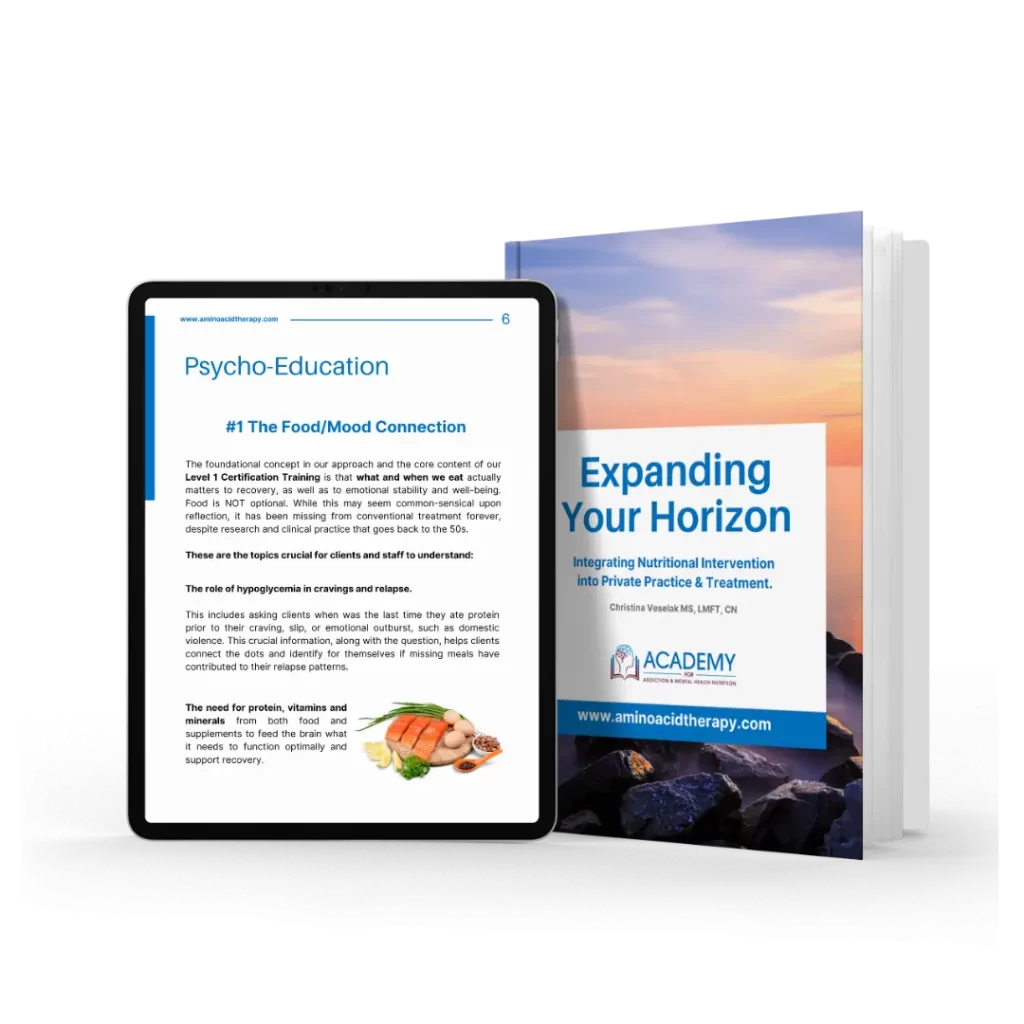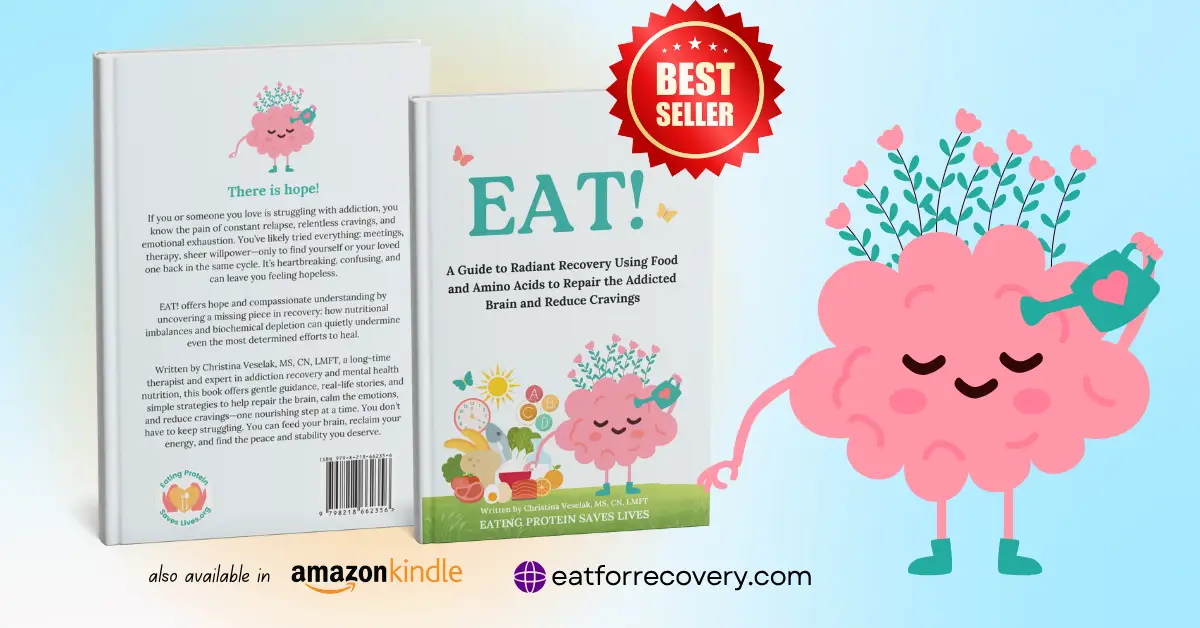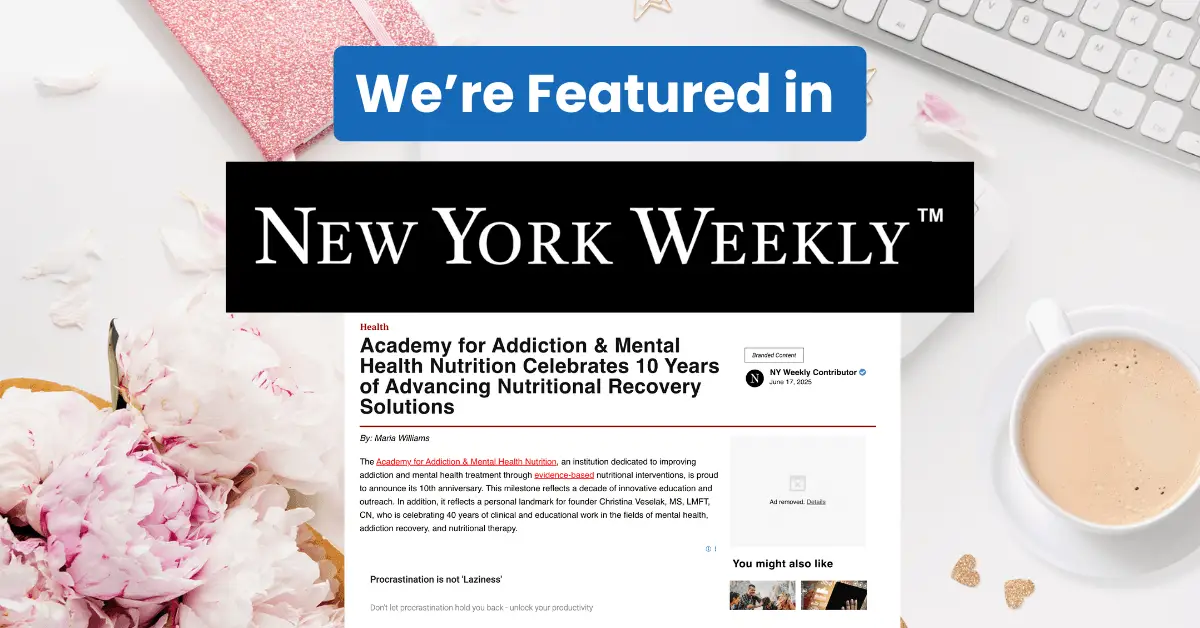At the Academy for Addiction and Mental Health Nutrition, we emphasize the critical role of diet in mental health and recovery. One of the foundational concepts in our approach, and the core content of our Amino Acid Therapy Level 1 Certification Training, is the Food/Mood Connection. This idea highlights that what and when we eat significantly impacts our recovery and emotional well-being. While it may seem common sense, the importance of diet has been largely overlooked in conventional treatment despite research and clinical practice dating back to the 1950s.
Understanding the Food/Mood Connection
The Role of Hypoglycemia in Cravings and Relapse
One crucial aspect of the Food/Mood Connection is understanding hypoglycemia’s role in cravings and relapse. Hypoglycemia, or low blood sugar, can trigger intense cravings and emotional instability. To help clients recognize this connection, ask them when they last ate protein before experiencing a craving, slip, or emotional outburst. This question helps clients connect the dots and identify if missing meals have contributed to their relapse patterns. Recognizing the role of hypoglycemia empowers clients to take proactive steps to manage their diet and prevent relapse.
The Importance of Protein, Vitamins, and Minerals
Consuming adequate protein, vitamins, and minerals from food and supplements is essential to supporting brain function and recovery. Protein is vital for neurotransmitter production, which influences mood and behavior. Vitamins and minerals support various biochemical processes in the brain, ensuring it functions optimally. Encouraging clients to maintain a balanced diet rich in these nutrients can significantly improve their emotional stability and recovery outcomes.
Practical Tools for Clients and Staff
Three-Day Food/Mood Diary
One effective tool for identifying eating patterns is a three-day food/mood diary. This diary helps track the time between meals, sugar consumption, protein intake, and other crucial nutrients. By monitoring these patterns, clients can gain insights into how their diet affects their mood and behavior. Additionally, a 24-hour Food/Mood/Craving study can be beneficial. This study tracks daily servings of sugar and protein, along with a mood and behavior scale, helping clients personalize the information they are learning.
Educational Materials and Handouts
Providing clients with educational materials on hypoglycemia and healthy eating can reinforce their learning. Handouts, educational posters on cafeteria and office walls, and other visual aids can be constant reminders of diet’s importance in recovery. These materials are available through the Academy and can be easily integrated into treatment programs.
Recommended Reading
Encouraging clients to read books on the connection between diet and mood can further empower them. Some powerful recommendations include:
- The Mood Cure and The Craving Cure by Julia Ross: These books explore the power of amino acid and nutrient therapy to support neurotransmitter repair.
- End Your Addiction Now by Charles Gant: This book provides insights into using nutrient therapy to overcome addiction.
- Anything by Suka Chapel Horst: Her works offer valuable information on the role of nutrition in mental health.
- Seven Weeks to Sobriety by Joan Mathews Larson: This book outlines a comprehensive program for achieving sobriety through nutritional intervention.
Implementing the Food/Mood Connection in Practice
Integrating the Food/Mood Connection into treatment programs involves a multi-faceted approach. Here are some steps to consider:
- Educate Staff and Clients: Ensure that both staff and clients understand the importance of diet in mental health and recovery. Use workshops, seminars, and printed materials to convey this information effectively.
- Monitor and Assess: Utilize tools like food/mood diaries and the 24-hour Food/Mood/Craving study to help clients track their dietary habits and recognize patterns. Regularly review these tools to assess progress and make necessary adjustments.
- Provide Nutritional Support: Access healthy, protein-rich foods and restrict sugary treats that can disrupt emotional stability. Consider providing essential supplements to ensure clients receive the nutrients they need.
- Create a Supportive Environment: Display educational posters and handouts in common areas to reinforce the importance of diet. Encourage open discussions about food and mood during therapy sessions.
- Empower Clients: Equip clients with the knowledge and tools they need to take control of their diet and, consequently, their mental health. Support them by making lasting changes that promote recovery and emotional stability.
The Food/Mood Connection is crucial to recovery and emotional well-being. By understanding the impact of diet on mood and behavior, clients can take proactive steps to manage their mental health. At the Academy for Addiction and Mental Health Nutrition, we provide cutting-edge education and consultation services to help professionals integrate nutritional interventions into their practice.
For a more comprehensive strategy and roadmap for integrating nutritional intervention into your practice or program, check out our eBook, Expanding Your Horizon: Integrating Nutritional Intervention into Mental Health & Addiction Practice & Treatment. This resource will guide you through the process and help you effectively implement these interventions.








